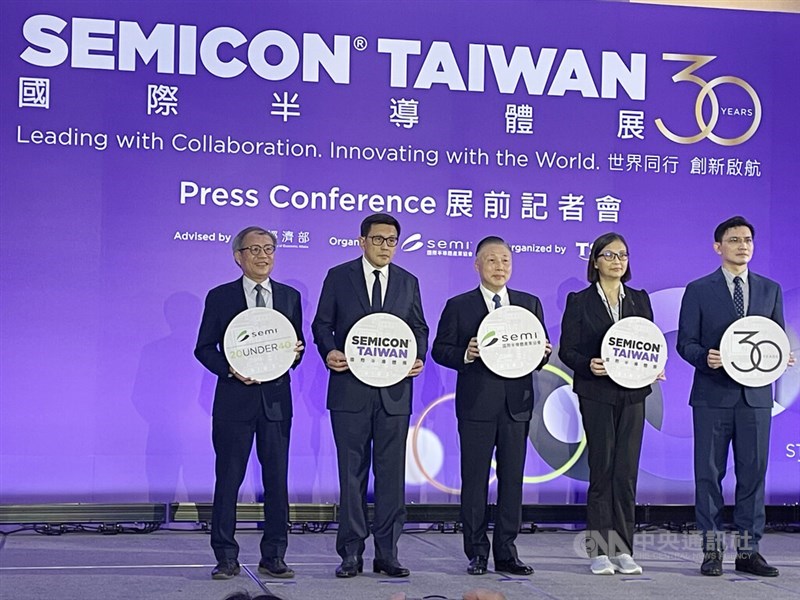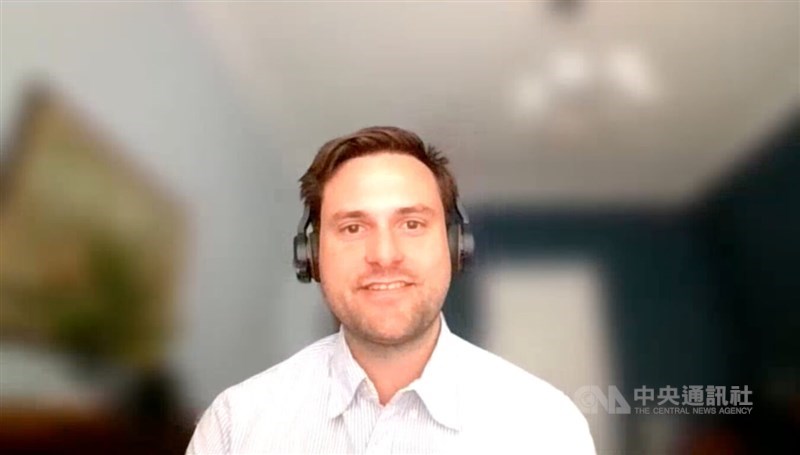
Berlin, Sept. 7 (CNA) Germany will establish its first ever national pavilion at SEMICON Taiwan, when the event starts on Wednesday in Taipei, with the country looking to raise its profile and strengthen semiconductor ties with Taiwan as global chip demand accelerates.
Martin Mayer, a semiconductor investment expert at Germany Trade & Invest (GTAI), an economic development agency of the Federal Republic of Germany, told CNA before departing for Taipei over the weekend that Taiwan is seen as a crucial partner in developing Germany's semiconductor ecosystem.
He said that Germany's debut at the international semiconductor exhibition in Taipei is intended to "show presence" and signal its commitment to semiconductors, while building trust with Taiwanese companies, government and industry associations.
"The best outcome would be for Taiwanese firms to invest in Germany," he said.
Mayer noted that Taiwan Semiconductor Manufacturing Co. (TSMC)'s planned 10 billion euros (US$14 billion) fab in Dresden has already galvanized the industry, heightened public awareness of the importance of chips, and is expected to create 2,000 direct jobs and up to 10,000 jobs overall.
The investment brings opportunities across chemical, gas supply, plant maintenance and other industries, he added.
Asked about Germany's competitiveness compared with countries such as Poland and the Czech Republic, which also seek Taiwanese investment, Mayer acknowledged higher labor and energy costs but stressed that productivity, R&D strength and Saxony's complete semiconductor ecosystem outweigh cost disadvantages.
"TSMC's choice of Germany is the best example," he said.

Germany is also addressing labor shortages by strengthening training and attracting global talent. Saxony recently allocated 140 million euros to establish the first fully English-language dual-track public vocational school in Germany, while Dresden University of Technology launched a new chip design program.
Other universities in Munich, Magdeburg and beyond are rolling out similar courses to strengthen the cultivation of engineers, according to Mayer.
He highlighted that demand for automotive semiconductors remains strong, as modern cars require many times more chips than they did 20 years ago, while demand is also growing in artificial intelligence, 5G, power semiconductors, photonics, aerospace, defense and drone technologies.
On supply chain risks, Mayer said the challenges are global, not unique to Taiwan. "The more difficult the times, the stronger the partnerships must be," he said.
He described semiconductors as the core of Taiwan-Germany cooperation, with the two economies highly complementary.
Saxony's Economy Minister Dirk Panter will also travel to Taiwan for the event and preside over the pavilion's opening.
Saxony, home to the Dresden fab, is often dubbed "Silicon Saxony" for its dense chip cluster.
- Society
7 injured in suspected gas explosion in New Taipei
10/03/2025 10:19 PM - Business
EVA Air launches maiden flight to Dallas
10/03/2025 09:58 PM - Society
Repair work underway on Hualien levees, height to be raised to 5 meters
10/03/2025 09:14 PM - Sports
Taiwan basketball legend Lin Chih-chieh to retire after 2025-26 season
10/03/2025 09:08 PM - Cross-Strait
KMT chairmanship candidates spar over cross-strait policy
10/03/2025 08:42 PM